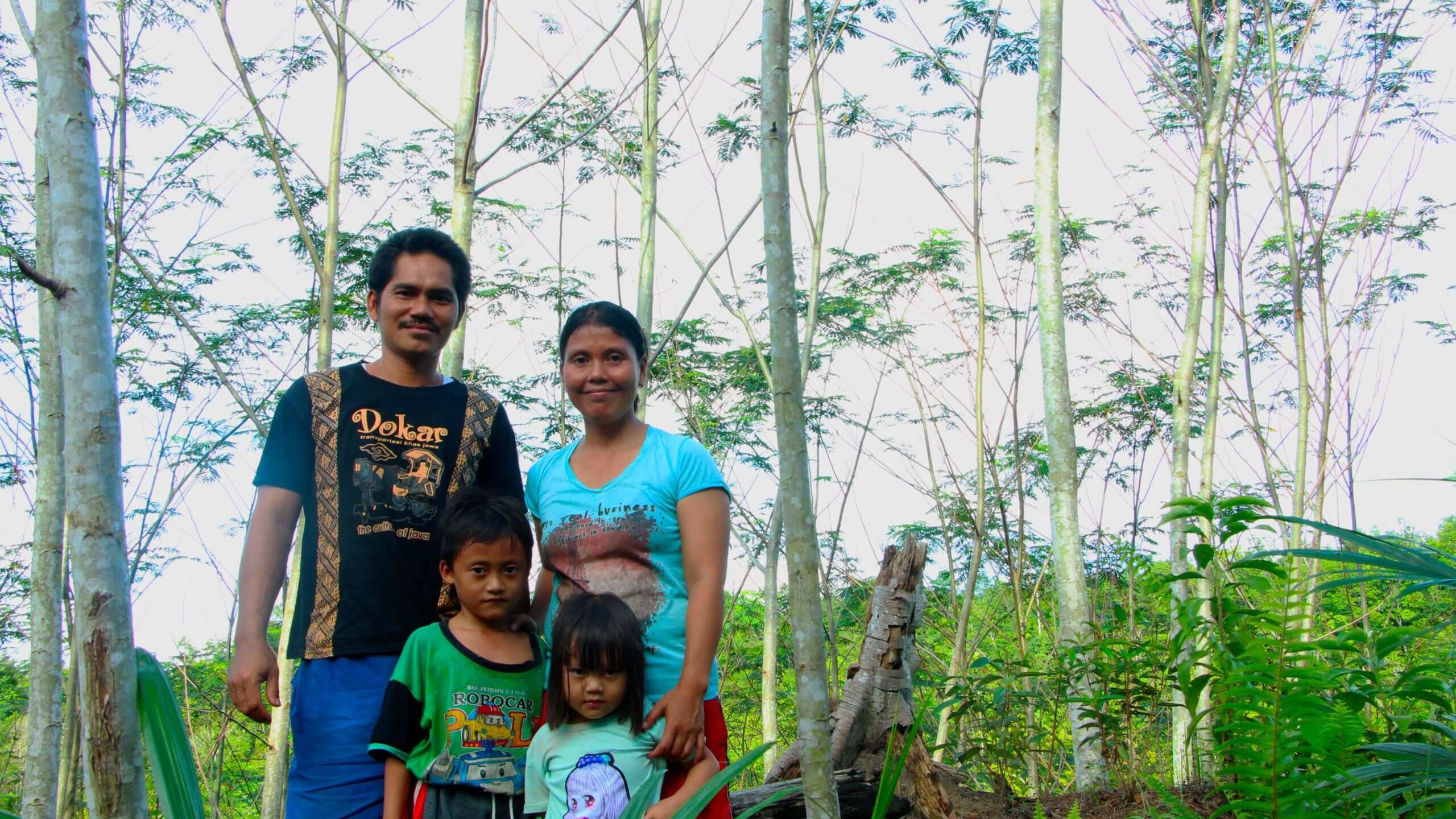
They stretch on for kilometers, these palm oil plantations on Borneo. An eerie sight. Not a sound can be heard. Even animals do not want to be here in this sterile environment. Though there is one who has not been deterred: Ludiyanto, a smallholder farmer, won’t budge against the big palm oil companies.
For a long time, there seemed to be no alternative to the palm oil monoculture. The people in the heart of Kalimantan, Indonesia, sold their land to large companies and were then inclined to work as laborers on the ensuing plantations.
But when Fairventures launched its reforestation program, new perspectives suddenly opened up. The fast-growing Sengon trees not only protect the climate, they also open up new sources of income for the smallholder farmers. Cultivating one’s own fields becomes worthwhile again. That is what won over Ludiyanto. He is not one to throw in the towel easily, even if it means fighting a seemingly hopeless battle.
“I have nothing but only this piece of land that I can give to my son in the future. I want to make sure he will have it one day and it will be full of trees”
– Ludiyanto
A few years ago, he was the only one who did not want to give up his field, even though all his neighbors had already sold their land to the large palm oil company. The unyielding smallholder farmer has shown great courage. Who would dare to do such a thing and put his own livelihood and that of his family at risk? Ludiyanto is also an exception in the 100 Million Trees program of Fairventures.
He has seemingly gained the respect of the workers on the palm oil plantation. The guards at the edge of the site greet him in a friendly manner when he arrives, open the barrier without hesitation and wave through the vehicle in which he accompanies visitors.
Ludiyanto reports that he has refused all offers to sell: “I don’t want to. The palm oil is so bad for the environment. That’s the biggest problem with it. Today we can’t drink the water from our rivers.” The reason for this are the many pesticides and fertilizers needed to maintain the monocultures, which are washed into the rivers and poison the water.
Ludiyanto has joined the 100 Million Trees program. The 38-year-old, accompanied by his wife and two children, proudly shows off his field in the heart of the palm oil plantation. We made him the proposal to plant sengon trees on it. In the meantime, the family is surprised at how quickly the trees grow.
“I wanted to try something new, and the idea sounded good, so I joined in. I got the seedlings and learned how to take care of sengon,” says Ludiyanto. In the beginning, the trees grew quickly, then a little more slowly. Soon, the smallholder farmer will be able to harvest wood. Ludiyanto is a stand-out example of how efforts to combat the climate crisis can pay off many times over, even if it sometimes means boldly embarking on uncertain paths.
For our German readership, Ludiyanto’s story can be found in the book Bäume für Borneo. In it, author Sarina Albeck takes her readers on a journey to the rainforest of Borneo and explains how reforestation protects the indigenous population and combats climate change.